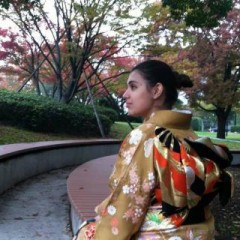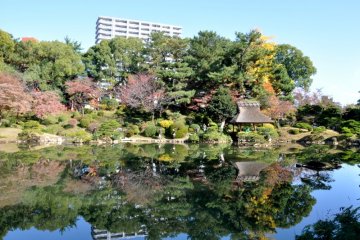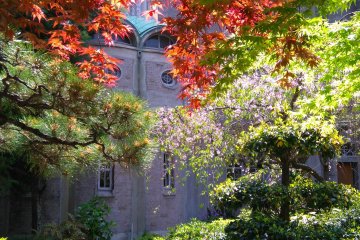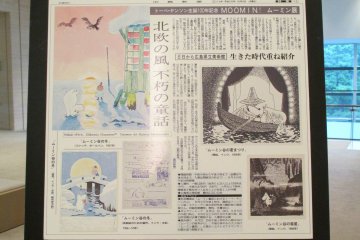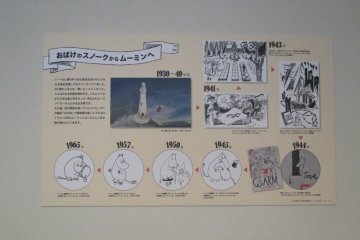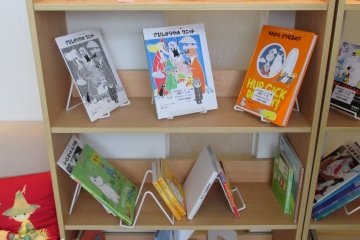The Hiroshima Prefectural Art Museum is hosting a Moomin exhibit from Aug. 8 to Sept. 6 in celebration of creator Tove Jansson's 100th birthday.
The exhibit provides a chance for fans to see 200 original sketches, paintings and studies by Jansson, 150 of which have never been displayed in Japan before. The exhibit, in cooperation with Tampere Art Museum in Finland, is one of the largest Moomin displays ever shown.
Moomin is a book series by Finnish-born artist and writer Tove Jansson (1914 - 2001) about trolls and other mysterious creatures that live together in harmony in Moominvalley. There are a many Moomin adaptations, including comic strips, several TV series and theater.
Many of the TV series were made in Japan, the most well-known one being The Delightful Moomin Family, created in the early 1990s by TV Tokyo, Telescreen Japan Inc. and Telecable Benelux B.V. The Delightful Moomin Family boosted Moomin's popularity in Japan to soaring heights. Today Moomin goods can be found nearly everywhere in Japan and there are even several Moomin cafes throughout the country.
The selection displayed at the exhibit ranges from pieces created as early as 1945 to pieces created in the '70s. The change in Jansson's style and designs is evident as soon as one enters the exhibit. Early works from the inception of Moomin are abstract, the surroundings vague. While Moomintroll today is seen as a cute, well-rounded figure, that was not always the case. Pieces from the '40s show Moomintroll as a mysterious, amorphous creature walking alone at night. More recent pieces from the '60s and '70s present a defined, jolly Moomintroll.
A defining characteristic of Jansson's art is her precision with ink. The pieces at the exhibit are mostly ink drawings and demonstrate her mastery of shading with pen. Despite nearly always using black ink, Jansson had a way of making light look authentic and bright, as well as making fog and reflections look misty and real.
Although the majority of the artwork in the gallery is ink drawings, there are also several watercolor and oil paintings, a large figurine of Moomintroll and a miniature of Moominvalley.
Scenes that can be seen in The Delightful Moomin Family, such as Snufkin leaving Moominvalley for the winter and the Moomin family's encounter with the Groke monster, illustrate a link from from the Moomin we know today to the origins of these beloved characters.
A motif commonly found in Jansson's work is the tremendous power of nature. The creatures of Moominvalley are often depicted as fighting against the elements. Scenes such as Moomintroll and friends pushing through harsh winds or Moominpappa's miniscule ship being engulfed in colossal tidal waves testify to this.
Jansson was a lover of nature, as stated in the message from the museum to the public. Nearly all of Jansson's works take place in nature, from forests with enormous trees, to the deep sea where mysterious and terrifying creatures live, to the somber Lonely Mountains overlooking Moominvalley. There is also a strong focus on the changing of the seasons. Drawings of Moominvalley during all four seasons are abundant.
Halfway through the display is a small room for children to read Moomin books while surrounded by Moomin merchandise. Although the room is intended for children, you will mostly find adults - both women and men - who grew up watching the pleasant Moomin characters on TV relaxing inside while revisiting their childhoods.
At the end of the exhibit is a gift shop to satisfy any and all Moomin needs. Memorabilia sold includes postcards with pieces from the gallery, towels, office supplies, DVDs, books in both Japanese and English and even an embosser set. It's Moomin heaven for any fan.


